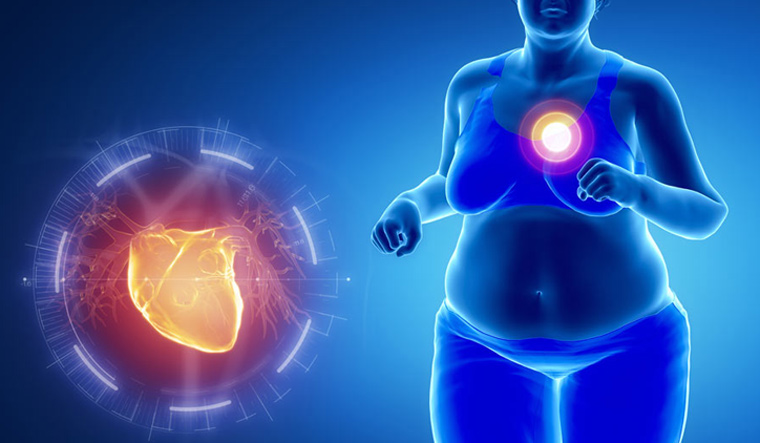According to research published in the Journal of the American College of Cardiology, women who have a high blood level of testosterone (the male hormone) and a high ratio of male hormones to female hormones (oestrogen) are likely to suffer from heart disease later in life.
Even though until the age of 50, women are at a lower risk for cardiovascular diseases than men, the risk becomes higher as they begin their journey beyond the age of 50. Because then, menopause comes into play and with that, the risk of heart diseases in post-menopausal women increases sharply, say experts.
In this study, researchers used data from the Multi-Ethnic Study of Atherosclerosis (MESA) over a 12-year follow-up period to understand the association of sex hormone levels with incidents of cardiovascular disease, coronary heart disease, and heart failure. Approximately 3,000 post-menopausal women free of cardiovascular diseases were taken into consideration, and sex hormone concentrations were measured using fasting serum samples.
Erin Michos, the associate professor of medicine at the Johns Hopkins University School of Medicine and senior author on the study, said that although sex hormone levels may be linked to future cardiovascular events, "It is unclear what the best intervention is to modify sex hormone levels for risk reduction. However, a sex hormone profile higher in male hormones may identify a woman as being at higher risk for cardiovascular disease."
According to the report, a higher testosterone:estradiol (oestrogen hormone) ratio was associated with an elevated risk for incident cardiovascular disease, coronary heart disease and heart failure.
Higher total testosterone level was associated with an increased risk for coronary heart disease and total cardiovascular disease, which is coronary illness plus stroke, while higher estradiol levels were associated with a lower risk of coronary heart disease.


